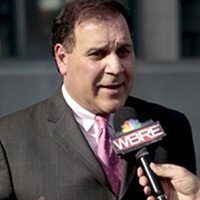Newfoundland White Collar Crime Lawyer, Pennsylvania
Sponsored Law Firm
-
 x
x

Click For More Info:
-
Law Office of Mark S. Guralnick
55 Madison Avenue 4th Floor Morristown, NJ 07960» view mapCriminal Defense Law Dedicated. Fearless. Successful.
Mark S. Guralnick and his legal team have helped clients throughout the USA and across the world by applying unparalleled dedication and hard work to each case.
800-399-8371
Not enough matches for Newfoundland White Collar Crime lawyer.
Below are all Newfoundland Criminal lawyers.
Joseph R. D'Andrea
✓ VERIFIEDOver the past 30 years, Joe D’Andrea has earned a reputation as one of the premier criminal defense attorneys in Northeastern Pennsylvania, while ag... (more)
Christian W. Francis
✓ VERIFIEDChristian W. Francis is a trial lawyer serving Northeast Pennsylvania and the surrounding region. His practice is focused on representing individuals ... (more)
Joseph S. Toczydlowski
✓ VERIFIEDJoseph S. Toczydlowski is a Pennsylvania attorney with 20 years of experience. Joseph is a graduate of Scranton Prep. He obtained a Bachelor of Sc... (more)
 Mark Guralnick Morristown, NJ
Mark Guralnick Morristown, NJ AboutLaw Office of Mark S. Guralnick
AboutLaw Office of Mark S. Guralnick Practice AreasExpertise
Practice AreasExpertise



